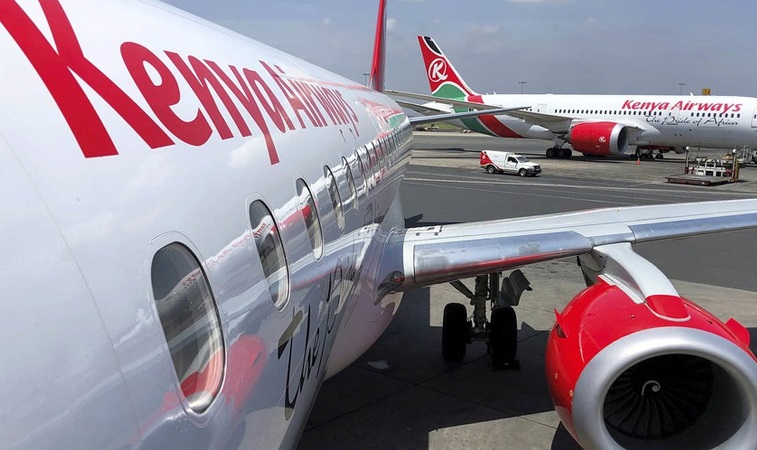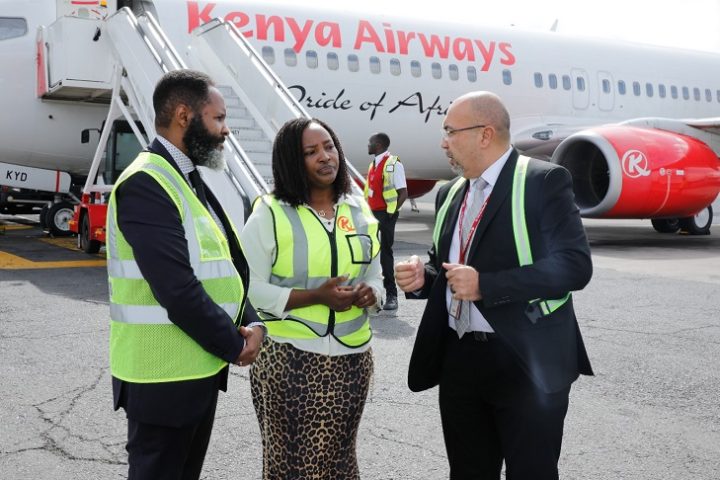There is no doubt that environmental and social responsibility are fast becoming critical indicators of corporate performance, not just in Kenya but around the world.
Kenya Airways (KQ) is among a few global aviation giants that have shown their commitment to sustainability as mirrored through its 2024 Sustainability Report. As Kenya’s national carrier and the continent’s sole representative in the SkyTeam Alliance, KQ is showcasing a compelling commitment to transparency, innovation, and global alignment in its Environmental, Social, and Governance (ESG) journey.
Sustainability reporting is more than a regulatory requirement; it’s a covenant of trust with stakeholders. Kenya Airways understands this well. The 2024 Sustainability Report is not just a glossy overview—it’s a candid narrative of KQ’s journey toward Net Zero by 2050, detailing not only successes but also challenges encountered along the way.
From carbon emissions to community investment, the report reflects clear data disclosures and honest assessments—hallmarks of a carrier committed to corporate accountability. In doing so, Kenya Airways sets a new standard for African corporates aspiring to be transparent global citizens.
Kenya Airways has firmly embedded global ESG standards into its operational DNA. By aligning its reporting and performance indicators with frameworks such as the United Nations Global Compact, the Global Reporting Initiative (GRI), and the Sustainable Development Goals (SDGs), KQ demonstrates its intent to benchmark against the best in the world.
This is not just box-ticking. It signifies the airline’s broader ambition—to move beyond national compliance and become globally relevant. Kenya Airways isn’t merely responding to pressure; it’s voluntarily choosing to hold itself accountable to the world, strengthening its role as a trusted, transparent, and impactful player in global aviation.
No airline can fly solo on the sustainability runway. Kenya Airways recognizes that real progress demands collective effort. In 2024, the airline intensified its partnerships with IATA, government regulators, and global climate action groups, including co-piloting the Integrated Sustainability Program (ISP) to mainstream climate resilience and social responsibility into aviation strategy [2].
These collaborations focus on emission reduction, the development of sustainable aviation fuels (SAFs), and circular economy practices—paving the way for systemic transformation in the industry. By fostering these strategic alliances, KQ is not only transforming its own operations but also contributing meaningfully to global aviation decarbonization efforts.
Related Content: Kenya Airways Joins WRC Safari Rally To Promote Sport Tourism
At the heart of Kenya Airways’ sustainability agenda lies a culture of innovation. From investing in fuel efficiency technology to implementing digitization across departments, KQ continues to make bold strides toward reducing its operational environmental footprint.
Water conservation measures, waste recycling, green procurement, and employee-led environmental initiatives have been scaled up in 2024. These aren’t fringe programs—they are core strategies that contribute directly to operational resilience and efficiency. By empowering teams to take ownership of green goals, Kenya Airways is nurturing a sustainability culture that runs through the entire organization.
Kenya Airways understands that stakeholder voices must shape its sustainability path. The 2024 report highlights robust engagement with employees, unions, investors, civil society, regulators, and passengers. This ongoing dialogue not only ensures mutual accountability but also makes room for collaborative innovation.
From community forums to investor briefings and customer surveys, KQ is not just speaking—it’s listening. And in doing so, it is building trust, fostering inclusivity, and refining its strategies to respond better to the people it serves and the planet it inhabits.
One of the strongest messages from this year’s report is that sustainability at KQ is not an afterthought—it is a strategic imperative. Every major decision—fleet modernization, route optimization, procurement policies, or facility upgrades—is being filtered through an ESG lens.
This long-term integration ensures that sustainability is not just about reducing harm but about creating value. Whether it’s investing in lighter, more fuel-efficient aircraft or revamping cargo operations for lower emissions, Kenya Airways is proving that profitability and sustainability can indeed fly together.
Kenya Airways also reaffirms its deep-rooted commitment to social responsibility. Its community empowerment programs cover education, gender equality, local supplier development, and youth employment—each tailored to reflect both local context and global equity goals.
These programs are not token gestures. They are deliberate investments that aim to build inclusive, resilient communities and ensure that the benefits of Kenya Airways’ success touch the ground in meaningful ways.
Kenya Airways’ 2024 Sustainability Report is a landmark document. It reflects a mature, intentional shift from compliance to commitment, from obligation to opportunity. As an African airline with global ambitions and local accountability, KQ is demonstrating that sustainability is more than a corporate checklist—it’s a mindset, a strategy, and a promise.
By integrating ESG into every layer of its business, Kenya Airways is not only future-proofing its operations but also shaping the future of aviation in Africa and beyond. The skies may be unpredictable, but one thing is clear: Kenya Airways is flying into the future with purpose, resilience, and integrity.
Related Content: Kenya Airways Returns As The Official Sponsor Of The Simbas












